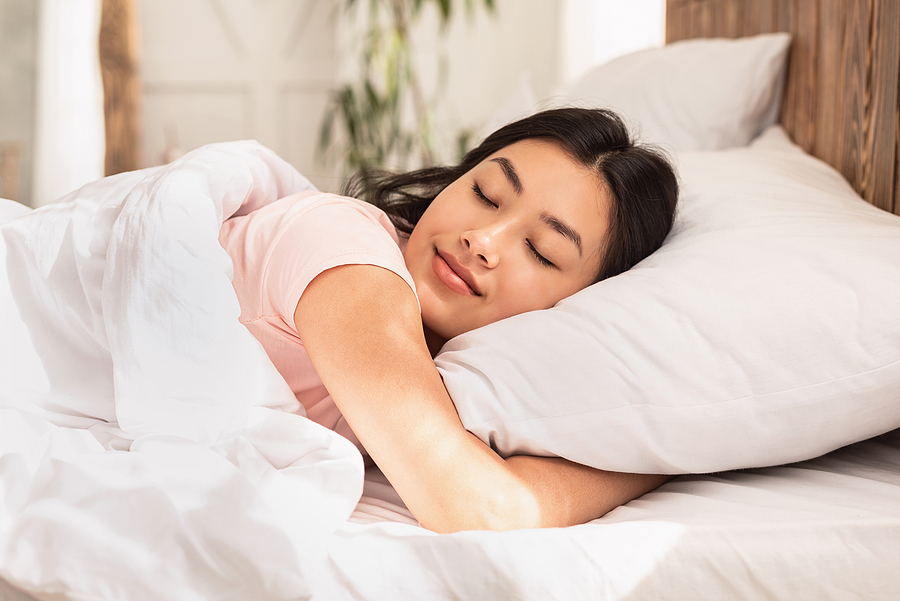After a long day, you want to lay your head on a pillow that is made of natural goodness, devoid of any chemicals or man-made fibers. Fast becoming a popular must-have item in bedding, there are many reasons for wanting an eco-friendly pillow, aside from them providing a better quality of sleep. So if you’re looking to purchase new pillows, perhaps it’s time you considered an eco-friendly one for these reasons.
Good for You
Table of Contents
Man-made and cheap to produce, polyester is a popular synthetic material used in the production of most things, including pillows, duvets, and blankets. You may be surprised to know that polyester is a form of plastic, which does not consist of anything natural and is in complete contrast to organic bedding, and due to its composition, it is often blended with natural fibers that make it softer to touch and gentler to our skin. However, this blending does not protect us against the damage polyester has the potential of causing if worn / used excessively, which include:
- respiratory issues, like asthma
- skin problems or worsening of, like eczema
- skin, lung, and heart cancer
- reducing sperm count
- affecting immune systems
Eco-friendly pillows are also hypoallergenic. This means allergies are less likely to be triggered by this natural material. Furthermore, these pillows are not toxic, unlike their synthetic counterparts, so you can sleep in comfort knowing that you are not sleeping on anything that has been made with harmful chemicals.
An eco-friendly pillow cannot only provide you with a healthy night’s sleep, but you could also avoid any of these potential health issues or exacerbating current ones. This is because the natural materials used are kinder to your skin and are more breathable, so if you’re prone to sweating, they will keep you cool making them perfect on those hot summer nights.
Good for the Environment
Companies that offer eco-friendly products tend to also be environmentally conscious, often looking at ways to reduce or cause minimal damage to the environment whilst increasing sustainability. For instance, some companies might be inspected by third party sustainability and safety consultants or may be GreenGuard Gold certified. This latter certification, in particular, proves they produce low emissions and are making, or have made, a recognizable effort to reduce impact from the production of their goods.
Additionally, many eco-friendly products will be biodegradable, meaning they avoid causing pollution. If everyone in your country used biodegradable products from today, imagine the difference this would make to your environment. The energy saved from not producing toxic man-made materials would be immense. The amount of pollution and space required in landfills would also be dramatically reduced.
Now imagine if the countries in the same continent as yours did the same. This may not seem like much, but when you consider polyester can take up to 200 years to biodegrade and nearly every home has at least one duvet set, you begin to wonder how much room unwanted duvets and pillows take up in landfills around the world.
Good for Others
Eco-friendly pillows are not only good for your health, and the environment, they tend to be made by companies that often give back to the communities from where they source their products. This could be via investing in the community, the supply chain, and/or labor practices in that specific country or even donating to relevant charities. Some positive actions of eco-friendly companies include:
- Ensuring workers are earning the minimum wage
- Planting a tree each time a sale is made
- Helping workers avoid working in the sex trade
- Enabling people to afford healthcare and education
The good news for the environment and the environmentally-conscious is there are many types of eco-friendly materials that pillows can be made from. These include organic latex, organic wool, organic cotton, buckwheat, and hemp. Some of these materials are used together as a blend to provide a better sleeping experience. You may want to research how these materials are used to make pillows. For instance, when using organic wool, techniques such as carding and garnetting are considered to create a better quality pillow that is also more durable than some other techniques.
It is thought that the average person spends approximately 2,500 hours in bed. This could increase if you factor in lay-ins, being unwell, or just generally relaxing on your bed. Nevertheless, this is a lot of time to be uncomfortable or using inferior bedding. Therefore, if you are looking for your next set of pillows, think of it as an investment for your health and consider an eco-friendly option.
Image Source: BigStockPhoto.com (Licensed)
Site Disclaimer
The Content in this post and on this site is for informational and entertainment purposes only. You should not construe any such information or other material as legal, tax, investment, financial, or other advice. Nothing contained on our Site constitutes a solicitation, recommendation, endorsement, or offer by HII or any third party service provider to buy or sell any securities or other financial instruments.
Nothing in this post or on this site constitutes professional and/or financial advice. You alone assume the sole responsibility of evaluating the merits and risks associated with the use of any information or other content in this post or on this site.
You recognize that when making investments, an investor may get back less than the amount invested. Information on past performance, where given, is not necessarily a guide to future performance.
Related Categories: Home, Health, Reviews







